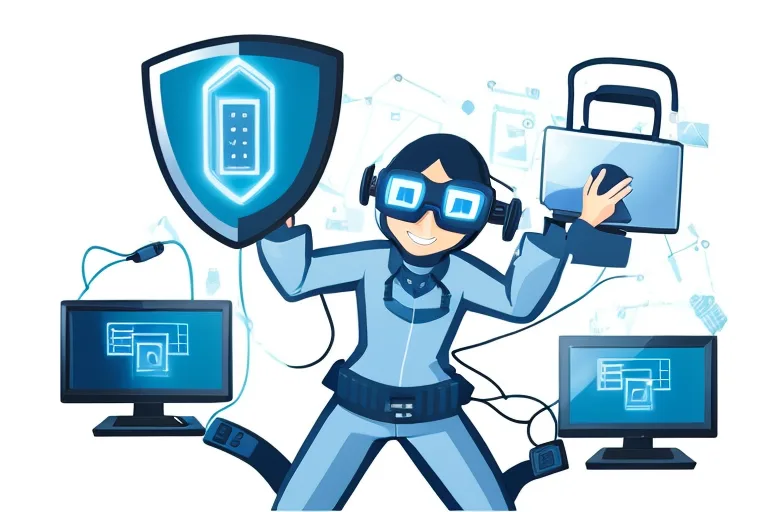As a small business owner, cybersecurity is probably something you’re thinking about a lot these days. And for good reason – a report from the National Cyber Security Alliance shows that 60% of small businesses go under within six months of a cyber attack. That’s a scary statistic, and it’s why it’s so important for small businesses to take cybersecurity seriously and implement measures to protect their operations and assets.
One of the biggest challenges small businesses face when it comes to cybersecurity is a lack of resources. This includes both financial resources and the time and expertise needed to set up and maintain strong cybersecurity measures. This makes small businesses a prime target for cybercriminals who know they’re more likely to have weaker defenses.
So, what can you do to protect your small business from cyber attacks? Here are some key steps:
- Use strong passwords and update them regularly. This means using complex passwords that are hard to guess and using different passwords for different accounts. Two-factor authentication is also a good idea, as it adds an extra layer of security by requiring users to provide an additional piece of information before logging in to their account.
- Regularly update your software and systems. This includes operating systems, applications, and security software. Cybercriminals often exploit vulnerabilities in outdated software to gain access to a system, so it’s essential to keep all software up-to-date to minimize the risk of a successful attack.
- Have a cybersecurity policy in place. This policy should outline the steps employees should take to protect the company’s assets. This can include guidelines for using strong passwords, avoiding suspicious emails and links, and reporting any potential security breaches. Providing employees with regular training on cybersecurity best practices is also a good idea to make sure everyone is aware of the importance of protecting the company’s assets.
- Implement a firewall and antivirus software. A firewall helps prevent unauthorized access to a network by blocking incoming traffic that doesn’t meet specific security criteria. Antivirus software, on the other hand, helps detect and remove malware from a system. Both of these tools are essential for protecting against a range of cyber threats, including viruses, worms, and Trojan horses.
- Have a plan in place for responding to a cyber attack. This plan should include a list of key stakeholders who need to be notified in the event of a breach, as well as a plan for how to contain the attack and prevent further damage. It’s also a good idea to have a backup plan in case the primary system is compromised, as this can help minimize the impact of a cyber attack on the business.
In short, small businesses need to take cybersecurity seriously in order to protect their operations and assets. By implementing strong passwords, regularly updating software and systems, having a cybersecurity policy in place, and implementing a firewall and antivirus software, small businesses can significantly reduce the risk of a successful cyber attack. In addition, having a plan in place for responding to a cyber attack can help minimize the impact of any potential breaches. By taking these steps, small businesses can protect themselves from the significant financial and reputational damages that can result from a cyber attack.
If you’re looking to boost your cyber security, give Davinci Technology a call! Our team knows all the ins and outs of keeping your business safe online. Don’t wait until it’s too late – give us a shout and let’s get started on securing your business.

